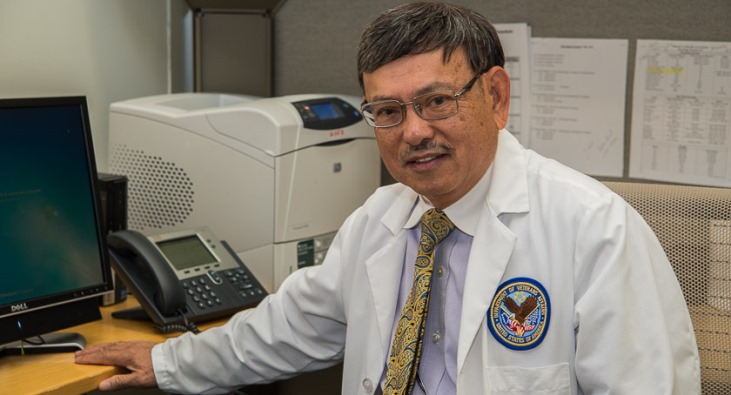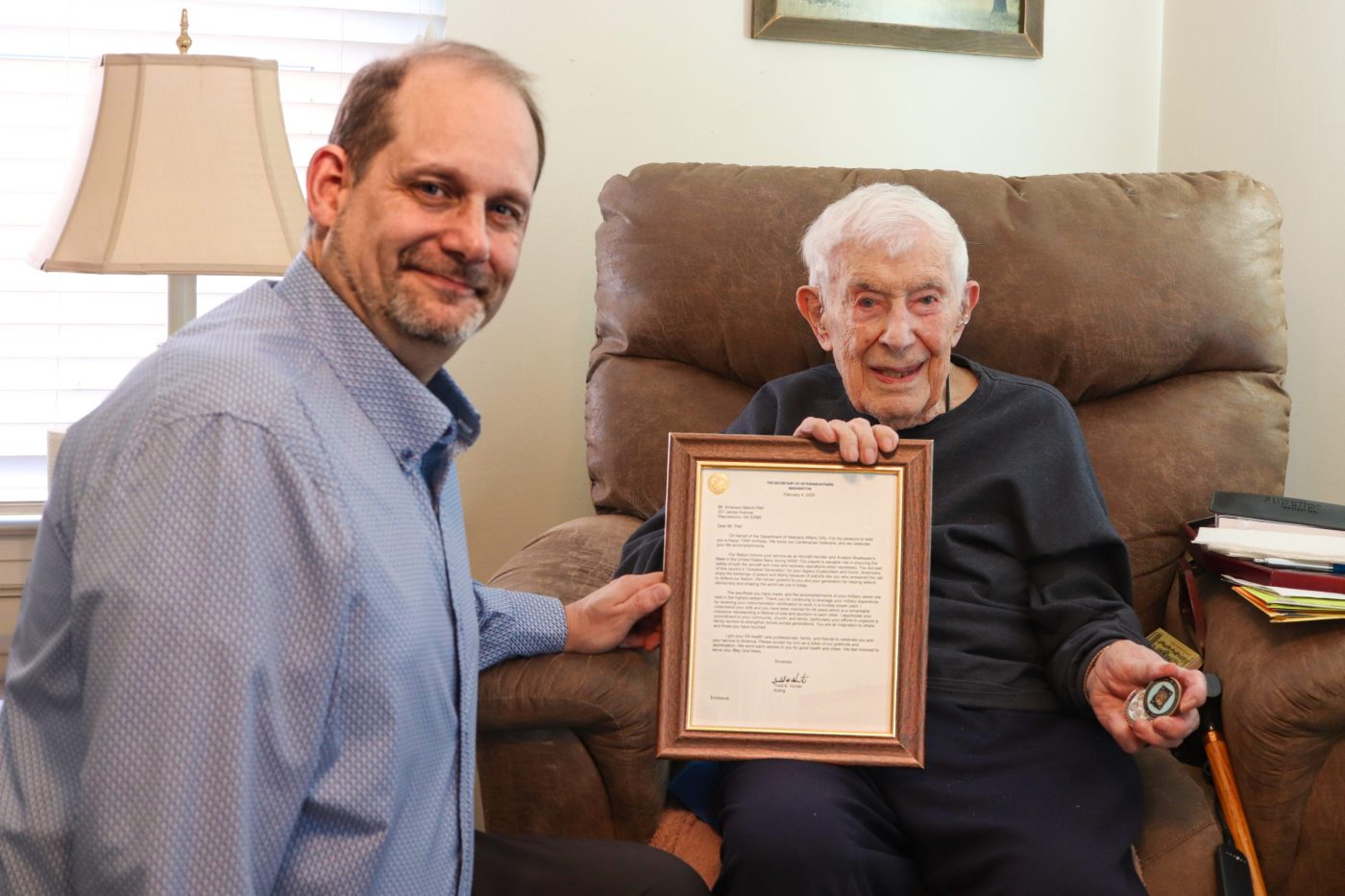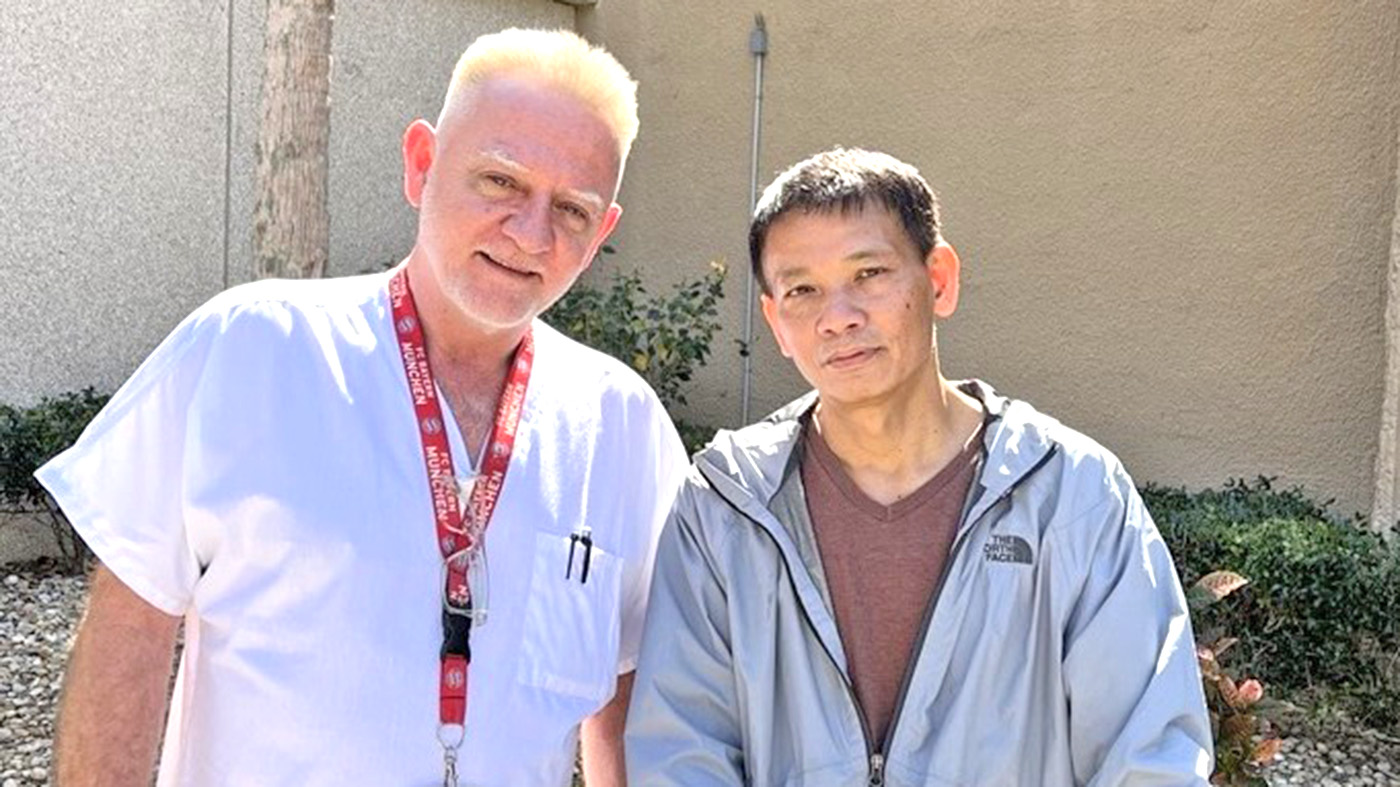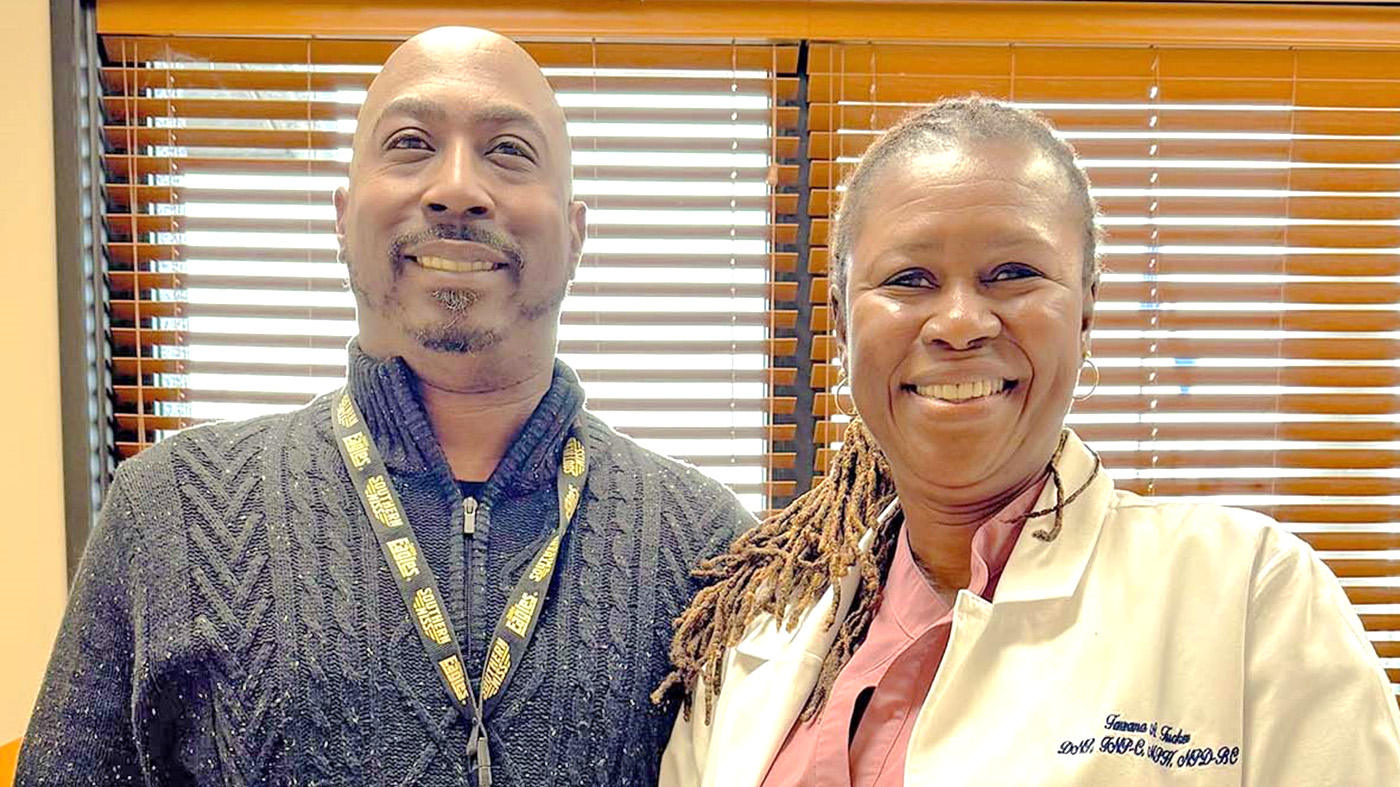The Phoenix VA Health Care System established its Traumatic Brain Injury and Alzheimer’s Disease & Cognitive Disorders Clinic in 2014 in response to the growing need to treat Veterans’ exhibiting TBI symptoms from their service in the wars in Iraq and Afghanistan.
Dr. Patricio Reyes, who began his medical career as acting chief of neurology at the Audie L. Murphy Memorial VA Medical Hospital in San Antonio, said he accepted the challenge to create the clinic because he wanted to reduce wait times for Veterans here following the 2014 access crisis. He was determined his goal would be to establish the premier TBI clinic in the nation.
Reyes said that wait times to see a neurologist were a concern when he started at the Phoenix VA. However, after two years, the wait times were decreased to less than three weeks based on improvements the clinic made, expansion of services and partnering with community providers through the Choice Program.
Reyes said neurologists at the Phoenix VA and throughout the country need to use a multifaceted and interdisciplinary approach to treat Veterans with TBI. He said, for example, neurologists need to differentiate TBI in Veterans from TBI because of sports injuries.
“TBI from military service is clearly different from TBI resulting from sports injuries,” Reyes explained. “The difference needs to be distinguished. In the military, you have improvised explosive devices.”
Reyes said Veterans injured by IEDs are exposed to a multitude of factors such as rotational forces that head-on injuries in football players and boxers do not create. This does not minimize the TBI athletes’ experience, but means the extent of injuries and their consequences that Veterans have experienced are not the same. He said, for example, problems breathing and with the heart are often associated with TBI in Veterans.
Reyes is the chief medical officer and a board member for the Retired National Football League Players Association. He’s served as the chair of the association’s Education Committee and was the 2009 Distinguished Educator of the Association of Ringside Physicians. Reyes said he feels he is uniquely qualified to understand the differences between Veteran TBI and sports TBI. He said Veterans typically experience systemic health problems such as high or low blood pressure, difficulty breathing and lack of sleep.
Further complicating the treatment of TBI in Veterans, injuries often go unreported because brain injuries are difficult to diagnose if the military member doesn’t lose consciousness and if there is no superficial evidence of a head wound. Reyes said it’s typical for military members to brush off any accident or incident that may have caused a brain injury, and then pick up their rifle and let their military training take hold.

“The chemical change is very important,” Reyes said. “You might not see a lesion, but there are some chemical changes. [This] reminds me of the kinds of changes I have seen when studying patients with Alzheimer’s. We could apply the same methods. We need to develop clinical and research protocols to understand better the mechanism in the evolution of symptoms of any pathology of the brain – chemical and structural.”
Reyes has made many contributions to the fields of aging, Alzheimer’s disease and neurodegenerative diseases. He established the first dementia and Alzheimer’s disease clinic and Rapid Brain Autopsy System in the country while he worked in San Antonio. While a professor at Thomas Jefferson Medical School in Philadelphia, Reyes helped develop the first U.S. Food and Drug Administration-approved drug for Alzheimer’s disease and the only skin patch treatment for Alzheimer’s. He said he felt TBI has some similarities to Alzheimer’s disease and that his expertise could help provide the Veterans here better care.
“We have the Rolls Royce of doctors here,” said John Shultz, a Marine Veteran and one of Reyes’ patients. “I met him several months ago, on the recommendation of a Veteran I know who was seeing him. He was able to explain clearly what was going on, and Dr. Reyes provided me alternative methods [instead of] simply handing me a prescription like other have done.”
Shultz said he feels the VA has come a long way since 2014, and that when the VA hires experts like Reyes, it shows him the VA is serious about providing the best care for Veterans.
“His background is unbelievable,” Shultz said. “I wish my wife had a doctor as knowledgeable as Dr. Reyes, [because] maybe then she’d still be alive. He’s like a master mechanic, and I feel very comfortable in his care.”
Reyes said it takes a holistic approach to truly caring for the Veterans, and providing resources to family members so they can better understand and help their loved ones with TBI is paramount for successful treatment.
“When you talk about problems of the mind, memory loss, concussion … you need a solution for the patient to address the problems with TBI, but also a solution for the family,” Reyes said. “You need programs to educate the families. Caring for patients with TBI is very difficult for spouses, so giving spouses an educational program is essential.”
Reyes said he and his team would like to develop a monthly family support group that would provide family members who care for Veterans with TBI the resources and tools to understand what is happening to their loved ones.
In March 2015, Reyes began holding conferences on the second Friday of every month to educate doctors, nurses and the public about the state of neurology, including TBI and PTSD. During the conference, Reyes lectures on different topics related to neurology or brings in experts to provide the latest information. For interested doctors, the classes are accredited continuing education in category one of the American Medical Association.
“My goal is to make the Phoenix VA the model for the country,” Reyes said. “This is a unique opportunity. I want to develop for all of us in the name of the Phoenix VA a legacy that truly cares for Veterans and their families.”
For Veterans or spouses who believe their Veteran may suffer from TBI, please contact your primary care doctor to set up a consultation for Neuropathology. For additional resources, visit the VA’s National Center for PTSD at https://www.ptsd.va.gov/index.asp
About the author: Macario Mora is a public affairs specialist for the Phoenix VA Health Care System.
Topics in this story
More Stories
When asked if he's a hero, 100-year-old WWII Navy Veteran Emerson Pell gave a short, modest response: “I was just a normal guy.”
A member of the Care Transition Clinic got to demonstrate his I CARE values for an Army Veteran.
When a Veteran explained a diabetic health issue to staff, they scheduled an immediate medical appointment.





